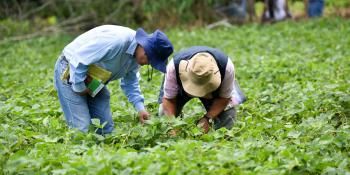New toolbox for gender and inclusion in climate change projects
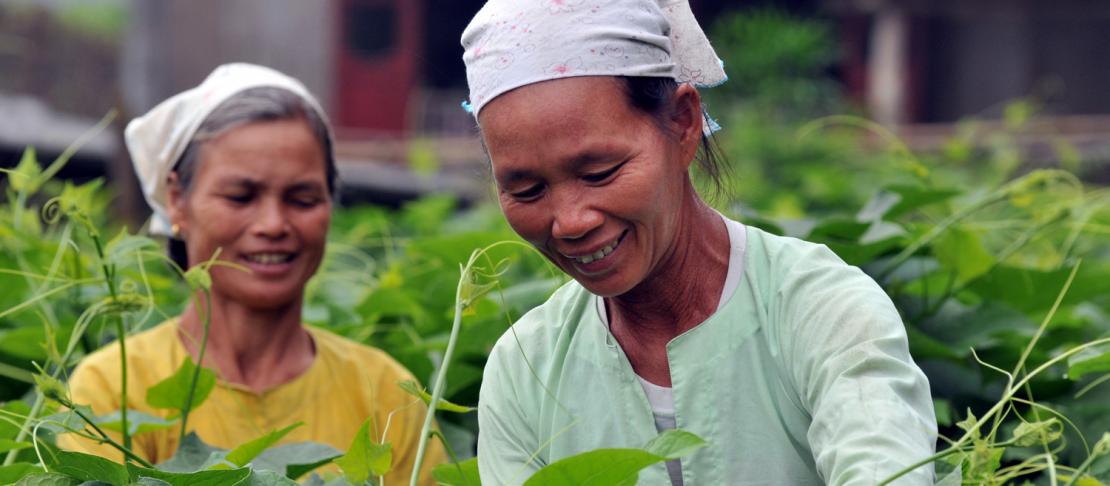
Toolbox supports integration of gender and social perspectives in climate research and program development
A manual presenting gender-sensitive and socially inclusive participatory action research tools is now available for download! The manual was launched via a live-streamed event in Nairobi, Kenya,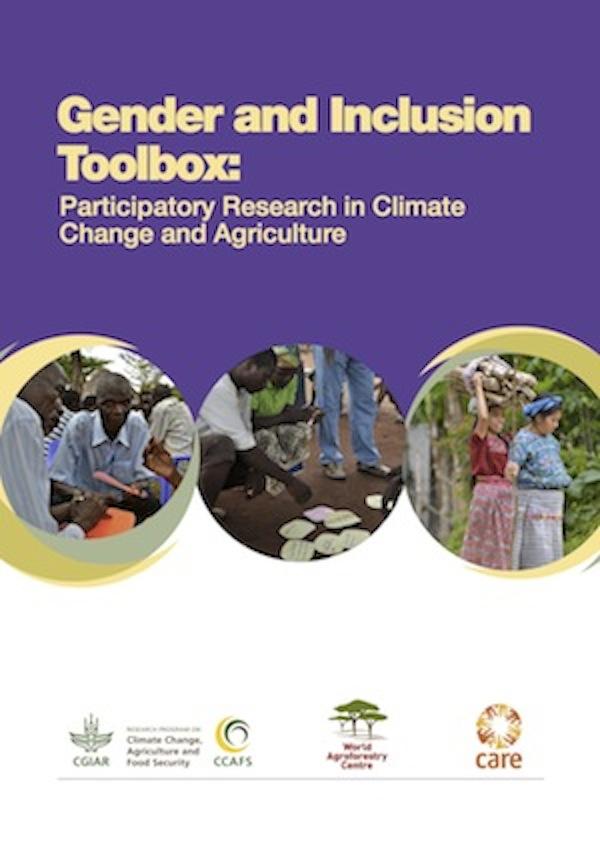 coinciding with the International Day of Rural Women to emphasize the need for more relevant, gender-responsive methods and tools for the development and research community.
coinciding with the International Day of Rural Women to emphasize the need for more relevant, gender-responsive methods and tools for the development and research community.
The Gender and Inclusion Toolbox: Participatory Research in Climate Change and Agriculture (PDF) is the result of a long-term partnership between the CGIAR Research Program on Climate Change, Agriculture and Food Security (CCAFS), World Agroforestry Centre (ICRAF), and CARE International.
Watch the live-stream gender toolbox event below!
The Food and Agriculture Organization of the United Nations (FAO) has in addition provided considerable contributions that ensures a high-quality product that keeps in line what it is trying to achieve: represent the knowledge, experiences and analyses of multiple actors.
Refining existing gender-sensitive methods and tools
The participatory toolbox builds on the previously released Gender and Climate Change Research in Agriculture and Food Security for Rural Development (PDF) training guide produced by FAO and CCAFS in 2012, and later updated and translated into Spanish and French in 2013. The new toolbox cannot replace it, but instead contributes with additional participatory tools and methods and a focus on social learning approaches.
We realized that the key gender-questions needed to be updated, and this time co-defined with local partners that are working closely with farmers – both women and men. We believe the rigorous testing in various contexts should make the modules presented highly useful, not just to researchers but development partners trying to figure out how to best support gender transformative approaches, said Patti Kristjanson, CCAFS Gender Research Leader and Senior Scientists at World Agroforestry Centre (ICRAF).
The participatory tools have been tested in Western Kenya through assistance from ICRAF, and Northern Ghana through the Adaptation Learning Programme (ALP) with CARE International. Based on results from each session, the tools have been refined and reworked. The ambition was to keep the tools practical, while supporting meaningful gender-research in the context of climate change and agriculture.
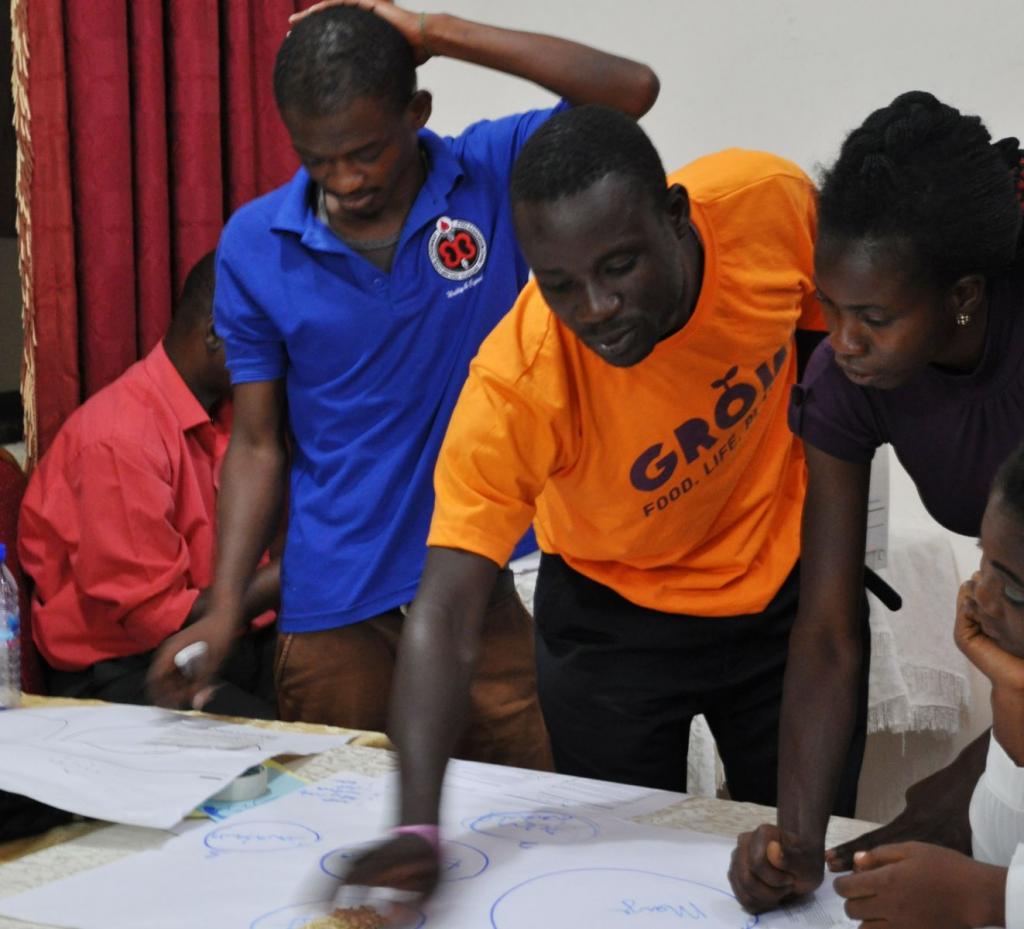
In the photo: Working with the CARE Ghana program team on how to best carry out the manual tools and methods. Photo: Taylor Spicer (Emory University).
Building the needed capacity to conduct gender and social inclusion research
The manual focuses on increasing the research capacity, skills and knowledge of its users, including non-governmental organisations, research for development programs, researchers and rural development actors engaging in climate change and agriculture work.
Capacity to engage in a sensitive way is critical but often lacking among development and research practitioners. CARE International’s contribution to this manual seeks to help fill this gap by providing some of our tried and tested approaches to gender and power analysis across different contexts, said Fiona Percy, Coordinator of the ALP porgramme for Africa within CARE International.
These sessions have also included capacity building of the various test-groups. The toolbox will continue to be tested throughout CCAFS research sites with partners like the Tropical Agricultural Research and Higher Education Center (CATIE) in the Trifinio biosphere in Guatemala and CCAFS research sites in Vietnam later this year.
The manual should be viewed as a living document that will be kept relevant by continuous input and feedback from practitioners using the methods in their work.
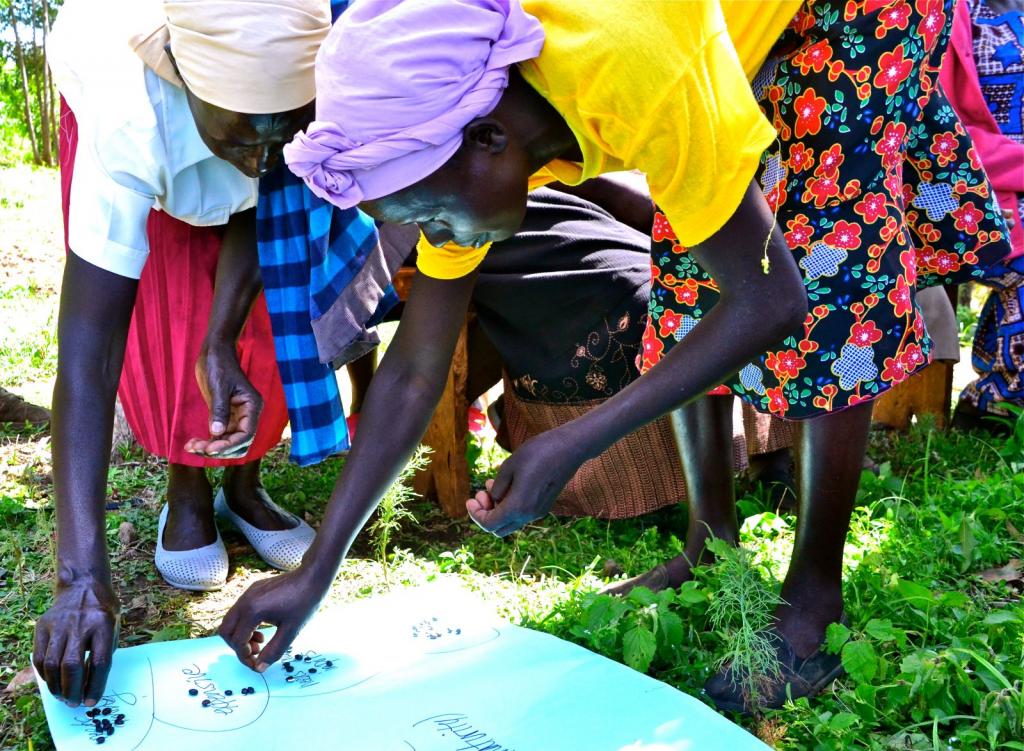
In the photo: Weighing in on obstacles, challenges and benefits from adapting new farming practices. Photo: Cecilia Schubert (CCAFS)
What does the gender toolbox contain?
The chapters are in modular format so that teams can assemble their own research toolbox specific to their needs. The participatory modules, aimed to spark discussions and engagement from participants, are: co-production of knowledge, climate-resilient agriculture, climate information services, and climate change mitigation.
Tools include: village resource map and goal tree, perceptions of women’s empowerment, climate-information ranking, information flow map, changing farming practices, co-benefit analysis and many others.
We hope this training manual will be a major contribution to climate change interventions that further improve men and women smallholders’ adaptive capacity and food security prospects, said Margaret Kroma, Assistant Director General at World Agroforestry Centre (ICRAF).
Download: Jost C, Ferdous N and Spicer T. 2014. Gender and Inclusion Toolbox: Participatory Research in Climate Change and Agriculture. CGIAR Research Program on Climate Change, Agriculture and Food Security (CCAFS). Copenhagen: Denmark.
Watch the live-stream launch event below, get presentations here.
- Read related blogs from the manual testing in Kenya.
- It takes a village to build climate-resilience
- What does ‘female empowerment’ mean to women in Kenya?
- Uncovering gender perceptions and beliefs in the hunt for climate information
For questions or enquiries:
Nafisa Ferdous, Co-developer of the Gender Toolbox: n.ferdous@cgiar.org
Cecilia Schubert, CCAFS Communications Officer: c.schubert@cgiar.org



